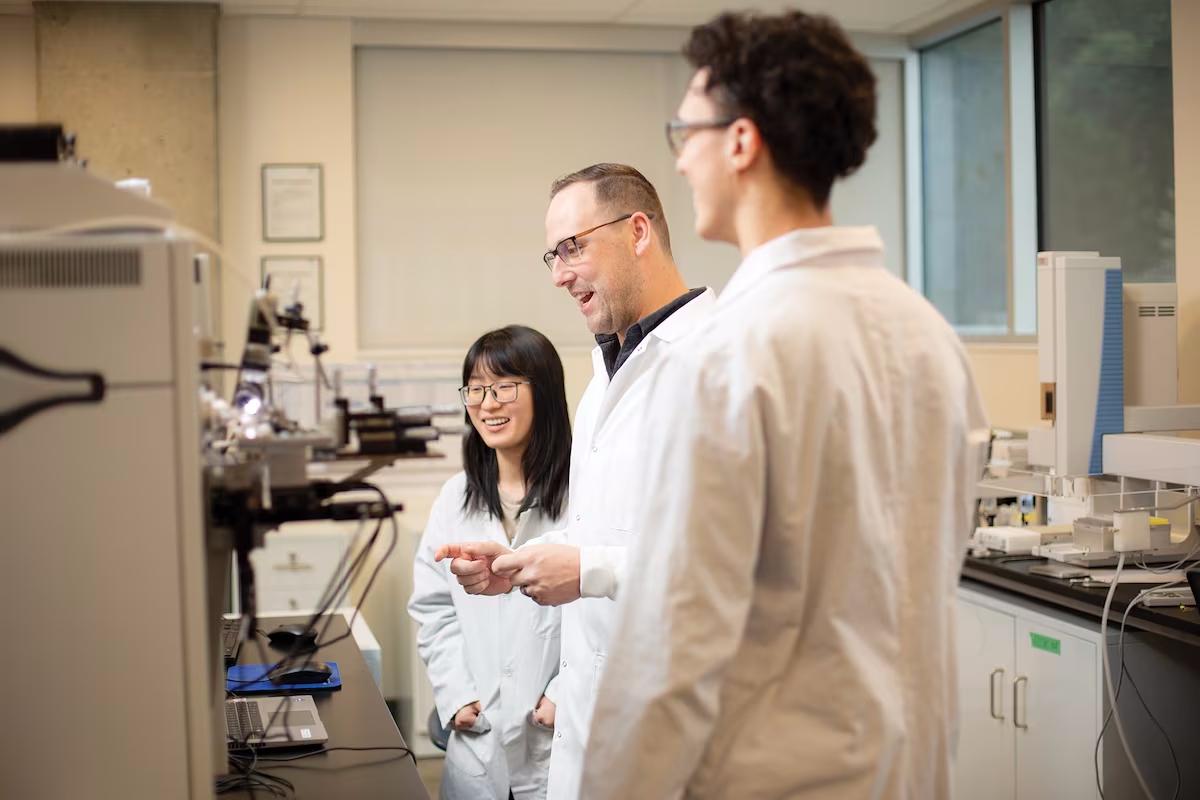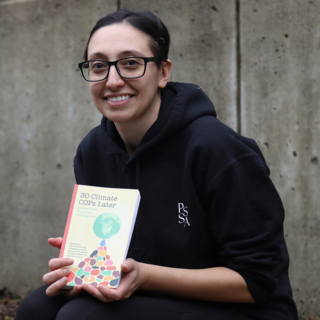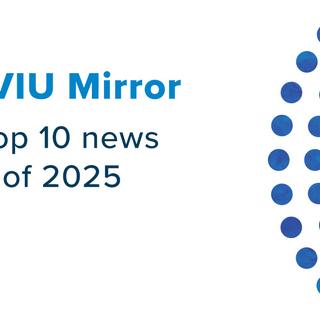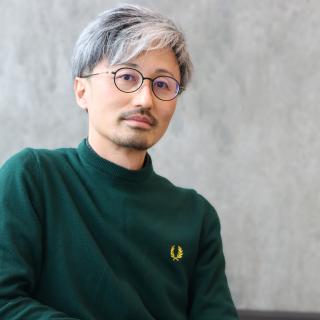Content reprinted from the Globe and Mail's Colleges and Institutes report
Advanced imaging technology being developed at Vancouver Island University (VIU) could lead to new treatments to disrupt cancer growth and progression.
Supported by an award of $2.4-million from the Terry Fox Research Institute, researchers at the university in Nanaimo, B.C., along with partners at other universities and research institutes, are delving into the origin and behaviour of cancer.
“The goal is to find new ways to help immune cells infiltrate tumours,” says Kyle Duncan, a professor of chemistry at VIU who specializes in analytical chemistry. He runs a research team called the VIU Metabolomics Group, which combines engineering, analytical chemistry and biological chemistry to explore biological systems.
The project focuses on creating high-resolution images to visualize metabolites, small molecules that control the metabolism of cells. Dr. Duncan says it’s critical to study changes in the presence and abundance of these metabolites, but existing methods used to examine them require tissue samples to be ground up and analyzed in a mass spectrometer, a device that determines the mass of different molecules. This gives a snapshot of the molecules present, Dr. Duncan says, but it “homogenizes” the sample. “When tumours grow, we have a mix of healthy cells and cancer cells together, and you’re not able to see the differences between unique regions within tissue.”
“It’s possible to uncover how things change on the molecular level throughout tissue, information that could help researchers discover new cancer treatment methods.” DR. KYLE DUNCAN, Professor of Chemistry at Vancouver Island University
The research team’s new technology uses custom mass spectrometry imaging to map the distribution of metabolites in two-dimensional tissue sections. “It’s possible to uncover how things change on the molecular level throughout tissue, information that could help researchers discover new cancer treatment methods,” explains Dr. Duncan, who learned such techniques as part of a postdoctoral fellowship at Uppsala University in Sweden.
He brought the technology to his position at VIU and began the research group to give students – especially at the undergraduate level – hands-on experiences. “It’s a great springboard for them to move onto graduate school and successful careers,” Dr. Duncan says. “You find real-world examples of what you learn in the classroom, which gives relevance to what you’re studying and provides opportunities for growth.”

Alora Keyowski, who is currently completing a bachelor’s degree in science, says being part of the research team has given her “super-important experience” and transferable skills in areas such as experimental design. “I’m learning to think outside the box in order to come up with an answer,” says Ms. Keyowski, who plans to next do a master’s in chemistry and is already working in a contract position as a laboratory technician. “I also like the idea that we can help to improve cancer treatment in the future,” she adds.
Ms. Keyowski’s experience is an example of the university’s strong community partnerships and the efforts of faculty to build the support of research-funding bodies, says Nicole Vaugeois, associate vice-president of Research and Graduate Studies.
“VIU prides itself on our commitment to student learning through research,” she says, noting that last year, more than 3,000 research experiences were provided to students, many of them undergraduates. “We look forward to an ever-increasing trajectory of impact working with partners who share our interest in knowledge creation.”
Dr. Duncan says the efforts of the students in his laboratory are part of the Spatial Metabolome Hubble Project supported by the Terry Fox Research Institute and the Lotte and John Hecht Memorial Foundation. The initiative, which covers three projects, is overseen by a team of seven principal investigators and extends to mid-2027.
Advertising feature produced by Randall Anthony Communications with Colleges and Institutes Canada. The Globe’s editorial department was not involved.
View original article: https://www.theglobeandmail.com/life/adv/article-from-new-insights-to-n…





